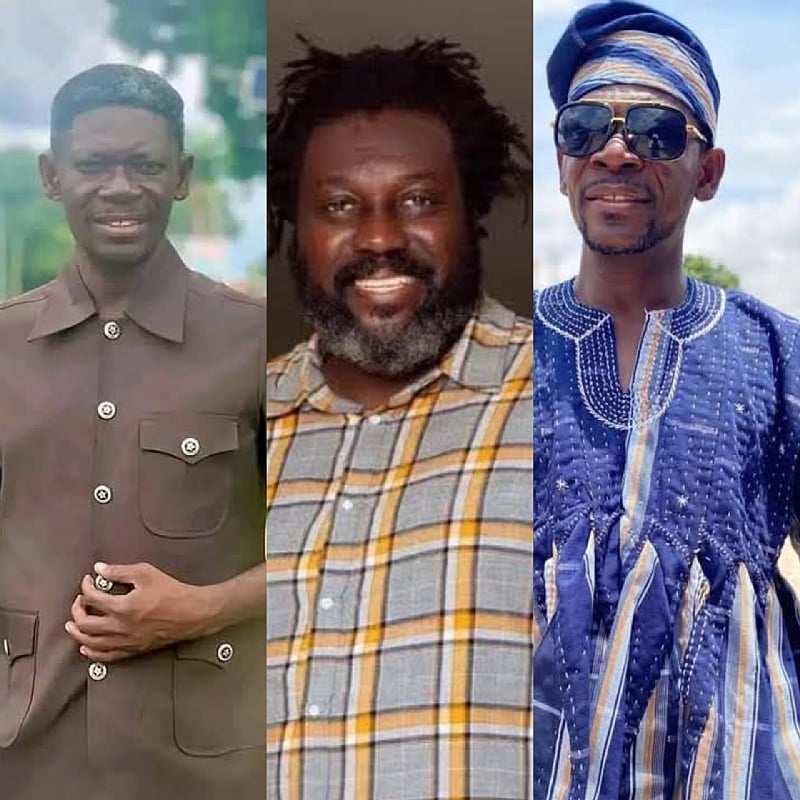The recent Ashanti Festival celebrations saw a notable absence: veteran Kumawood actor, Agya Koo. Speculation arose regarding the reason for his non-attendance, with some suggesting a deliberate exclusion due to Agya Koo’s open support for the New Patriotic Party (NPP). However, fellow Kumawood actor Michael Afranie has refuted these claims, asserting that no actor was barred from participating in the festivities. Afranie, who participated in the celebrations with his Kumawood All Stars group, maintains that Agya Koo’s absence was likely due to personal reasons rather than any political maneuvering. He suggests that Agya Koo’s own conscience, perhaps burdened by his vocal political stance, may have influenced his decision to stay away.
Afranie emphasized the inclusive nature of the event, stating that no formal invitations were issued, especially to actors residing within the Ashanti Region, like Agya Koo. He believes Agya Koo’s presence would have been welcomed had he chosen to attend, dismissing any notion of a personal vendetta or organized boycott against the actor. Afranie’s account suggests a scenario where Agya Koo’s absence was self-imposed, possibly stemming from his own internal deliberations regarding his political affiliations and their potential impact within the context of the festival. This perspective shifts the narrative from one of deliberate exclusion to one of personal choice, highlighting the complexities of navigating political allegiances within the entertainment industry.
The Ashanti Festival, a significant cultural event, draws participation from various sectors of society, including the entertainment industry. Kumawood actors, like Agya Koo and Michael Afranie, often play a prominent role in these celebrations, contributing through performances and their presence. Agya Koo’s absence, therefore, became a noticeable gap, sparking conjecture and raising questions about potential underlying reasons. Afranie’s clarification aims to dispel rumors of political ostracization, offering an alternative explanation centered on Agya Koo’s personal agency in deciding not to attend.
Agya Koo’s public support for the NPP is well-documented, and his political stance has, at times, been a subject of public discussion. While Afranie doesn’t explicitly confirm this as the sole reason for Agya Koo’s absence, he alludes to the possibility that Agya Koo’s political convictions might have played a role in his decision-making process. This highlights the delicate balancing act that public figures often face, navigating the intersection of their personal beliefs and their professional lives. The incident underscores the potential for political affiliations to influence social dynamics, even within seemingly apolitical contexts such as cultural festivals.
The Kumawood film industry, based in Kumasi, the heart of the Ashanti Region, holds a significant cultural influence. Actors like Agya Koo and Michael Afranie are prominent figures within this industry, enjoying widespread recognition and a dedicated following. Their participation in cultural events like the Ashanti Festival adds to the festivities and reinforces the connection between the entertainment industry and the community. Agya Koo’s absence, therefore, was not merely the absence of an individual but the absence of a prominent figure within the Kumawood landscape, further fueling speculation and prompting inquiries into the circumstances surrounding his non-attendance.
Michael Afranie’s account seeks to clarify the situation, offering a perspective that places the onus of Agya Koo’s absence on the actor himself. By emphasizing the lack of any formal exclusion and highlighting the welcoming atmosphere that prevailed at the festival, Afranie paints a picture of an event open to all, irrespective of political leanings. This challenges the narrative of political marginalization, suggesting instead that Agya Koo’s decision was a personal one, potentially influenced by his own considerations regarding his political identity and its implications within the context of the Ashanti Festival. The incident provides a glimpse into the complex interplay of politics, entertainment, and personal choices within the dynamic landscape of Ghanaian society.














